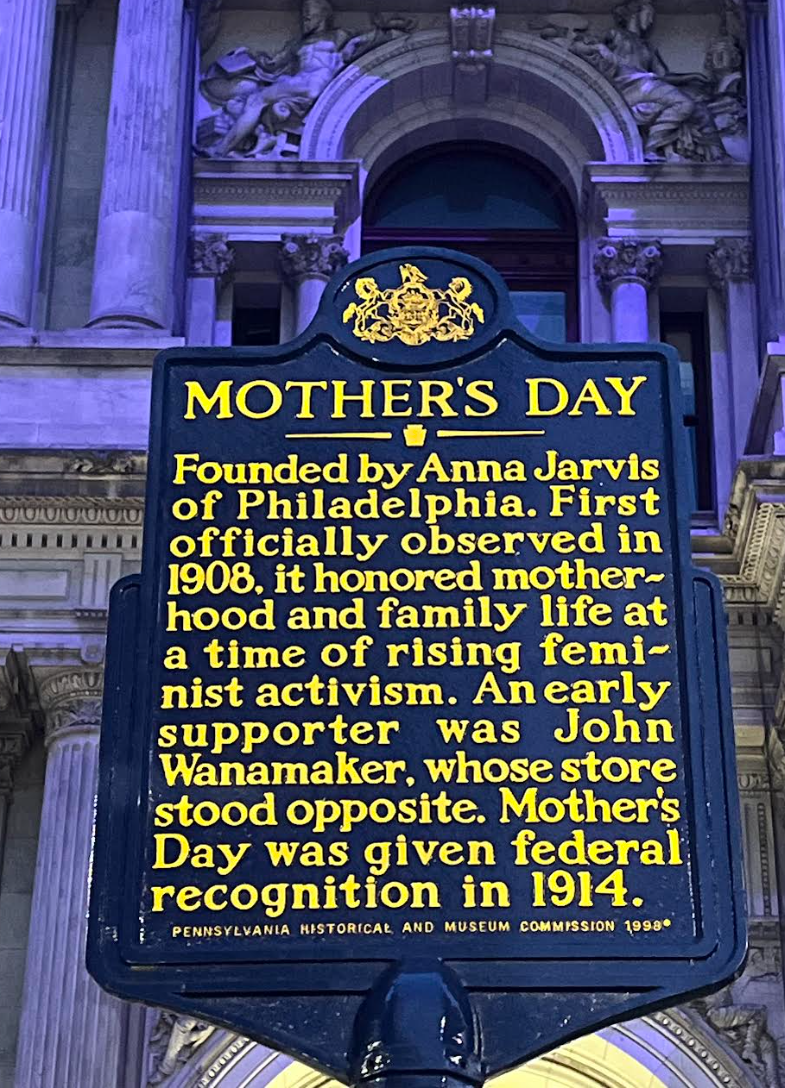
photo courtesy of www.artchickphotography.com
Discover the fascinating and complex legacy of Anna Jarvis, the American activist who created Mother’s Day — and later waged war against its commercialization.
the staff of the Ridgewood blog
Who Was Anna Jarvis?
Ridgewood NJ, Anna Jarvis (1864–1948), born in Webster, West Virginia, is best known as the founder of Mother’s Day in the United States. Her passionate campaign led to the national recognition of the holiday in 1914, but her later years were marked by intense disillusionment as she watched her vision for Mother’s Day become hijacked by commercial interests.

The Inspiration: Ann Reeves Jarvis
Anna was the 10th of 13 children born to Ann Reeves Jarvis, a Sunday school teacher and social activist. Of the 13 children, only four survived to adulthood — a tragic but common reality in 19th-century Appalachia, where poor sanitation and a lack of medical care led to high infant mortality rates.
Ann Jarvis was a pioneer in public health education, forming Mothers’ Day Work Clubs in 1858 to teach families how to prevent disease. During the Civil War, she maintained neutrality and directed her clubs to care for both Union and Confederate soldiers. After the war, she organized a Mothers’ Friendship Day to promote reconciliation between former enemies.
Anna Jarvis and the Birth of Mother’s Day
In 1876, 12-year-old Anna Jarvis heard her mother offer a prayer in Sunday school:
“I hope and pray that someone, sometime, will found a memorial mothers day commemorating her for the matchless service she renders to humanity.”
Anna never forgot those words. After her mother’s death in 1905, she pledged to honor her by making Mother’s Day a reality.
In 1908, Anna organized the first official Mother’s Day church service in Grafton, West Virginia. She continued a letter-writing and public speaking campaign, tirelessly advocating for a national observance.
Her work paid off. By 1914, President Woodrow Wilson signed a proclamation establishing Mother’s Day as a U.S. national holiday, celebrated on the second Sunday in May — the anniversary of her mother’s passing.
A Personal Day, Not a Public Movement
Jarvis insisted that Mother’s Day should be a deeply personal occasion, a day to honor one’s own mother — not a celebration of all mothers or a platform for social causes. She was adamant about the use of the possessive singular: “Mother’s Day”, emphasizing the intimate nature of the holiday.
This stance contrasted with her mother’s broader vision of motherhood as a force for community and activism. While Ann Reeves Jarvis envisioned mothers as agents of societal change, Anna focused on their private, family-centered contributions.
Fighting the Commercialization of Mother’s Day
As Mother’s Day gained popularity, florists, greeting card companies, and retailers quickly turned it into a lucrative commercial event. This horrified Anna Jarvis.
She called out the industry’s greed, stating:
“A printed card means nothing except that you are too lazy to write to the woman who’s done more for you than anyone in the world.”
She trademarked the term “Mother’s Day”, organized boycotts, filed lawsuits, and even publicly criticized First Lady Eleanor Roosevelt for using the holiday to promote charity.
In her words, the holiday had been hijacked by:
“Charlatans, bandits, pirates, racketeers, kidnappers and other termites that would undermine with their greed one of the finest, noblest, and truest movements and celebrations.”
A Sad Ending to a Noble Legacy
By the 1940s, Jarvis was nearly penniless and living with her sister. In 1943, she began a campaign to abolish the very holiday she had fought to create, but before it could launch, she was committed to a sanitarium. She died in 1948 at age 83, childless and disillusioned.
Today, her birthplace in Webster, West Virginia, is preserved as a museum, honoring both her vision and her struggle.
The Legacy of Anna Jarvis
Anna Jarvis’s story is a powerful reminder of how noble intentions can be overshadowed by commercial interests. Her fierce dedication to honoring mothers — and later, her relentless fight to protect the holiday from exploitation — reflects the deep emotional weight and personal value she placed on the role of motherhood.
While millions now celebrate Mother’s Day with flowers and cards, few remember the woman behind the movement — or her wish that the holiday remain a personal tribute, not a commercial opportunity.
Tell your story #TheRidgewoodblog , #Indpendentnews, #information, #advertise, #guestpost, #affiliatemarketing,#NorthJersey, #NJ , #News, #localnews, #bergencounty, #sponsoredpost, #SponsoredContent, #contentplacement , #linkplacement, Email: Onlyonesmallvoice@gmail.com
